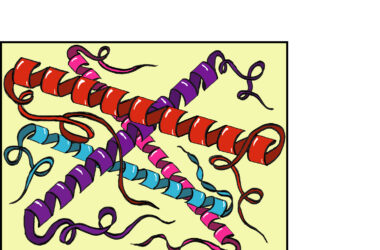Productivity and procrastination: The notorious p-words of finals season. As students pack into libraries like sardines to cram a semester’s worth of information into a few days, final exams seem like the only thing on anyone’s mind. Fortunately, there are ways to make the studying process more effective and less strenuous.
In an email to The McGill Tribune, Signy Sheldon, assistant professor in McGill’s Department of Psychology and Canada Research Chair in Cognitive Neuroscience of Memory, explained that, perhaps counterintuitively, taking some time away from the books can actually help to maximize time spent studying.
“One theory [about] memory is that information is remembered better when it is repeated at certain intervals,” Sheldon wrote. “So, when studying for an exam, take breaks before coming back to review information. This will help information become less resistant to forgetting.”
While the research is inconclusive as to exactly how long the ideal studying interval is, anywhere between 25 and 52 minutes seems commonplace, with breaks ranging from three to 15 minutes. Timing aside, there is also research on the best strategies to use when learning material. The levels of processing theory posits that one can learn at a surface level by focusing on simple details, like the words or diagrams from lectures, or at the deeper level by considering the underlying meaning of the material.
“Deep processing leads to memories that are stronger and last longer,” Sheldon wrote. “For something to be learned deeply, you can try linking new information to familiar and meaningful information. One tool would be to link what you’re learning to what you already know.”
Thomas Shultz, professor of computational psychology at McGill, also supports this approach to learning. Shultz is a firm believer in the crib sheet, a double-sided piece of A4 paper on which students can fit a semester’s worth of information to bring into the exam.
“[Students] universally say they like it because they are relearning the course material by organizing it at increasingly-higher levels of abstraction,” Shultz wrote in an email to the Tribune. “They also like it because they are no longer anxious about memorizing.”
This re-organization and summarization of course material fosters deep learning. Further research suggests that writing notes by hand leads to greater retention of information than typing them; thus, a handwritten crib sheet would be the most useful tool for learning.
While studying is crucial, the all-important ‘hygiène de vie’ is just as necessary for good grades as mental health.
“I think the most toxic habit students engage in is not sleeping,” Sheldon said. “Sleep really is essential to creating memories, which is essentially what you are doing when you are studying.”
While people sleep, their short-term memories are consolidated into long-term memories, which allows for better recollection of information. This process is critical for forming new memories, making it ideal for retaining information.
Ultimately, what most students struggle with during finals is staying motivated despite a workload that feels overwhelming at times. One way to overcome negative inertia is to reconfigure the looming pile of work in original ways by planning a study date in a new place or holding a game show-style review session for example. By framing studying as something exciting, it becomes something to look forward to, which makes it all the more likely that the memorization will be productive.









